
Matchbox is a toy brand which was introduced by Lesney Products in 1953, and is now owned by Mattel, Inc, which purchased the brand in 1997. The brand was given its name because the original die-cast "Matchbox" toys were sold in boxes similar to those in which matches were sold. The brand grew to encompass a broad range of toys, including larger scale die-cast models, plastic model kits, slot car racing, and action figures.

Hot Wheels is an American media franchise and brand of scale model cars invented by Elliot Handler and introduced by his company Mattel on May 18, 1968. It was the primary competitor of Matchbox until Mattel bought Matchbox owner Tyco Toys in 1997.

Nerf is a toy brand formed by Parker Brothers and currently owned by Hasbro. Most of the toys are a variety of foam-based weaponry, with other Nerf products including balls for sports such as American football, basketball, and baseball. Their best known toys are their dart guns that shoot ammunition made from "Nerf foam". Their primary slogan, introduced in the 1990s, is "It's Nerf or Nothin'!". Annual revenues under the Nerf brand are approximately US$400 million.
The Icee Company is an American beverage company located in La Vergne, Tennessee, United States. Its flagship product is the Icee, which is a frozen carbonated beverage available in fruit and soda flavors. Icee also produces other frozen beverages and Italian ice pops under the Icee and Slush Puppie brands. ICEE Bear, an animated polar bear, is the company's mascot.
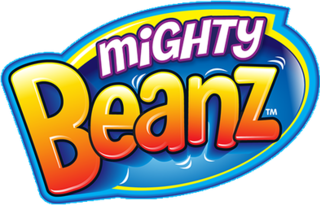
Mighty Beanz was a collectable children's toy line of plastic beans created by Moose Enterprises in Melbourne, Australia. The primary Mighty Beanz game is to race the Beanz down different types of battle stages.

Lewis Galoob Toys, Inc., was a toy company headquartered in South San Francisco, California. They are best known for creating Micro Machines, which accounted for 50% of its sales in 1989, and distributing the Game Genie in the United States.
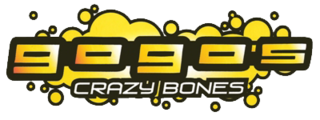
Gogo's Crazy Bones are colorful plastic figurines that can be used to play many different games, similar to marbles and jacks. There were many series throughout their production. Each piece is a different character with a name and personality. They became a popular fad during the late 1990s. Crazy Bones were produced by PPI Worldwide and distributed by Spanish company Magic Box, Int. from 1996-2019.
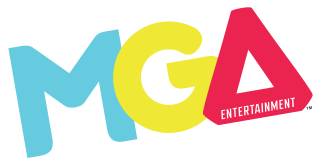
MGA Entertainment Inc. is a manufacturer of children's toys and entertainment products founded in 1979. Its products include Bratz, Num Noms, Lalaloopsy, and Rainbow High, as well as toys targeted at boys such as Scan2Go. MGA also owns Little Tikes and animation studio MGA Studios.

Lego Harry Potter is a Lego theme based on the film series of the same name and the eponymous novels by British author J. K. Rowling. It is licensed from Warner Bros. Lego models of important scenes, vehicles and characters were made for the first six films and all of the published books. The first sets appeared in 2001, to coincide with the release of the first film, Harry Potter and the Philosopher's Stone. Subsequent sets were released alongside the new films, until Harry Potter and the Order of the Phoenix. The line then went dormant for three years, with sets being released in 2010 and 2011. In 2018, it was announced that more sets based on the Harry Potter franchise would be released, including new sets based on Fantastic Beasts and Where to Find Them and its sequel, Fantastic Beasts: The Crimes of Grindelwald.

Keshi aka keshigomu is the Japanese word for eraser. In modern "keshi" refers to a collectible miniature figure, often of a manga or anime character, made of coloured hard rubber. However, the word's reference has broadened beyond its etymological meaning, as keshi are made of several types of rubber, ranging in appearance from opaque matte to transparent. Also, some lines, such as the "Cosmos Souls Keshi Gum", use plastic parts. Keshi figures are not necessarily based on Japanese comic book or TV series franchises, since there are keshi dedicated to video games and some western lines are based on local mythologies and popular culture. A similar product is often mistakenly thought be keshi, the pencil cap toy which appeared around the same period.

Nintendo Mini Classics are a series of small LCD games licensed by Nintendo in 1998. Most games in the series are reissues of Game & Watch titles, but the series does include titles that were not from the original Game & Watch line, like Spider-Man, Carrera and Yu-Gi-Oh!.
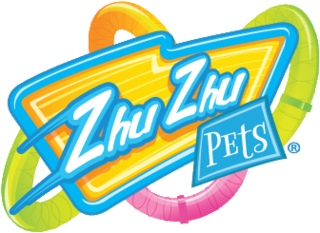
ZhuZhu Pets is an American line of plush robotic hamster toys created by Cepia LLC in 2009. Multiple spin-off toy lines, including ZhuZhu Puppies and Kung Zhus, have been released.
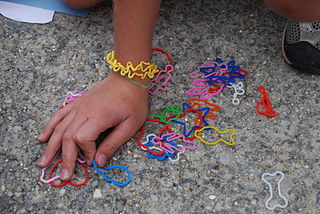
Silly Bandz are rubber bands made of silicone rubber formed into shapes including animals, objects, numbers, and letters. They are normally worn as bracelets. Silly Bandz retail in packages with select themes, such as princesses or animals, and fashion accessories. Similarly shaped silicone bands are also available under other brand names from a variety of companies. Silly Bandz were especially popular in the early 2010s.
G.I. Joe is an American media franchise and a line of action figures owned and produced by the toy company Hasbro. The initial product offering represented four of the branches of the U.S. armed forces with the Action Soldier, Action Sailor, Action Pilot, Action Marine and later on, the Action Nurse. The name is derived from the usage of "G.I. Joe" for the generic U.S. soldier, itself derived from the more general term "G.I.". The development of G.I. Joe led to the coining of the term "action figure". G.I. Joe's appeal to children has made it an American icon among toys.
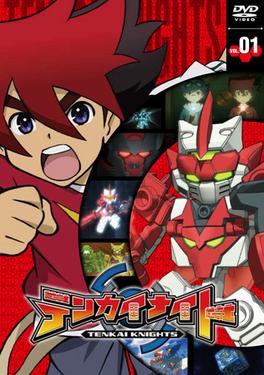
Tenkai Knights is a 2014 Japanese-Canadian mecha anime series based on a toy line by Spin Master, produced by Shogakukan-Shueisha Productions, Spin Master Entertainment and TV Tokyo and animated by Bones. It was directed by Mitsuru Hongo, with Jin Kanada and Hiroshi Ōnogi handling series scripts, Toshihiro Kawamoto and Shigeru Fujita designing the characters, Takayuki Yanase and Fujirō designing the 3DCG characters and MONACA composing the music. The series officially aired on Cartoon Network in the United States on August 24, 2013 and in Canada on Teletoon on September 28, 2013. After a year, it premiered on TV Tokyo and its affiliate stations on April 5, 2014.
Amiibo is a toys-to-life platform by Nintendo, which was launched in November 2014. It consists of a wireless communications and storage protocol for connecting figurines to the Wii U, Nintendo 3DS, and Nintendo Switch video game consoles. These figurines are similar in form and functionality to that of the Skylanders, Disney Infinity and Lego Dimensions series of toys-to-life platforms. The Amiibo platform was preannounced to potentially accommodate any form of toy, specifically including general plans for future card games. Amiibo use near field communication (NFC) to interact with supported video game software, potentially allowing data to be transferred in and out of games and across multiple platforms.

Moose Toys, also known as Moose Enterprises or The Moose Group, is an Australian-owned toy design, development, and distribution company founded in 1985 by Brian Hamersfeld. The company is headquartered Cheltenham, Victoria, Australia, has over 600 staff and distributes to over 50 countries. They are most known for their collectible mini-figure toy lines "Trash Pack" and "Shopkins", and their associated franchises.
Toys-to-life is a video game feature using physical figurines or action figures to interact within the game. These toys use a near field communication (NFC), radio frequency identification (RFID), or image recognition data protocol to determine the individual figurine's proximity, and save a player's progress data to a storage medium located within that piece. It was one of the most lucrative branches of the video game industry especially during the late 1990s and 2010s, with the Skylanders franchise alone selling more than $3 billion worth over the course of four years.

Shopkins are a range of tiny, collectable toys manufactured by Moose Toys. Based on grocery store items, each plastic Shopkin figure has a recognizable face and unique name. They also have special finishes like translucent, glitter, or squishy. The collectable toys also expanded into lines of clothing, trading cards, and other related merchandise.















